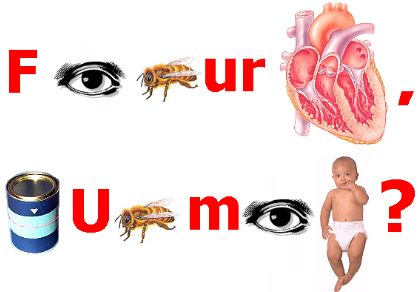They Grow Up, Don't They?
 One day you come across something that makes you realize your child is not just your child anymore; he or she is a thinking -- and thoughtful -- questioner, a person on his own quest to make sense of things.
One day you come across something that makes you realize your child is not just your child anymore; he or she is a thinking -- and thoughtful -- questioner, a person on his own quest to make sense of things. Each increment of growth is a surprise; even as you imagine your child into the next phase, when he arrives, seemingly spontaneously, you stand in awe; you let go a little more.
The following essay is a recent post from the Baron's Boy's blog, stuck in between analyses of "Firefly" adventures and random thoughts on the vagaries of women:
Today in my Middle Eastern Archaeology class the professor talked about the origins of agriculture from two points of view: the natural forces hypothesis and the cultural change hypothesis. Put simply, these two notions cover the fundamental question of what man is: a creature of action or reaction? A creature who shapes his life or is shaped by it? The natural forces theory holds that man is controlled by his surroundings, a puppet jerked around by the strings of climactic change and environmental factors that are beyond him to predict or explain. On the other hand, the cultural change theory tends to look more at the synthetic aspects of man's existence, and how man-made things--agriculture, industry, and so forth--shape him, just as they were shaped by him.I couldn't have said it better myself. In fact, I wish I had said it.
I'm not sure if this is an already-posited theory, but it seems to me that man is no less a product of the environment than the environment is a product of man. For lack of a better word, I'm going to call this the Inflection Point Hypothesis. Imagine this: a lowland river valley in a fairly temperate zone, with mountains sloping up from both banks of the river. The fishing is good, and the land is suitable for subsistance crops of various sorts. The people of this valley survive mainly on rudimentary agriculture: wheat, barley, maybe rice if it's wet enough. Perhaps there's limited domestication of pigs, dogs, and goats. However, the flood plain is fairly wide during the colder, rainier seasons, and there's already been significant erosion of the villages around the river, to the extent that the people are moving farther and farther up the slopes of the valley. Now, here's the eponymous "inflection point": the people can either attempt to dam the river and alter its course and flooding pattern, or they move away from the valley floor, into the mountains. If they dam the river successfully, they've set the stage for continued settlement in the valley, which I believe would significantly affect the course of history in that area. If there's continued settlement, there is the possibility of an enlarged cultural sphere, perhaps even the foundation for a civilization. A continued settlement will build walls, establish trade routes, and serve as a nexus point for travel, warfare, and other forms of human interaction. However, if they move into the mountains and beyond, the people will come into contact with other groups. Maybe they will assimilate these groups, or be swallowed up by them; maybe they will fight and conquer, or be conquered. The point is: in either damming the river or moving away, they have already set into motion things both within and beyond their control. There is no one governing factor above all others in the course of these events. There are actions under our control, and there are things that follow from human actions that shape both what we do and how we do it.
There seems to be one critical mistake with both the cultural change and the natural forces hypothesis. They both give the impression of accounting for fluidity in human action, but stay rooted in the static mindset that seems to accompany ancient historical study. There is nothing static about human interaction with the environment. Every action brings new change, and every new change brings newer action. We cannot shape our world without it shaping us...and it cannot shape us without being itself shaped. Heisenberg, I think, would not disagree.
 During the latter part of the third century A.D., Claudius was Emperor of Rome — Claudius II, that is. In what has to be one of the dumbest edicts ever devised, Claudius decided to outlaw marriage, thinking it would be more efficient to raise troops if he didn’t have to tear them away from their families.
During the latter part of the third century A.D., Claudius was Emperor of Rome — Claudius II, that is. In what has to be one of the dumbest edicts ever devised, Claudius decided to outlaw marriage, thinking it would be more efficient to raise troops if he didn’t have to tear them away from their families. 




